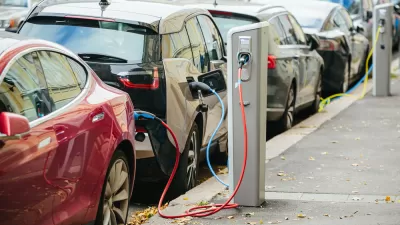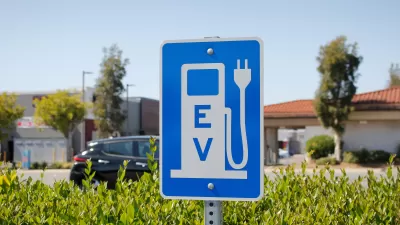Charging stations for electric cars are multiplying much faster than the plug-in vehicles that can use them for many reasons. While the federal subsidies help, some in the business community believe that the chargers will attract new customers.
"Shop while you charge" may be an advertisement for a store near you according to some analysts in the industry. While there are only "1,400 publicly accessible chargers scattered around the country, Pike Research projects 13,000 stations by the end of 2012."
Depending on where they are located, that should be more than enough to satisfy the "fewer than 15,000 all-electric cars on U.S. roads today according to Plug In America, a group promoting the technology."
Many if not most analysts doubt that number will not explode to the one million that President Obama hopes for 2015. Regardless, small and chain businesses, like Walgreens have shown interest in ordering the chargers, in part because of a federal government subsidy of "$130 million for two pilot projects that help pay for chargers at homes, offices and public locations."
"A 480-volt 'fast' charger, capable of recharging a vehicle in 30 minutes or less, typically costs $40,000, plus installation. The more common commercial 240-volt chargers... can cost $2,000 to $3,000 and take almost eight hours to fully charge a Nissan Leaf, though they offer a meaningful boost in shorter periods.
Home chargers can cost $700 to $1,000, plus at least that much for installation. Those costs will fall as production rises, says John Gartner, an analyst at Pike Research."
FULL STORY: Charging Stations Multiply But Electric Cars Are Few

Planetizen Federal Action Tracker
A weekly monitor of how Trump’s orders and actions are impacting planners and planning in America.

Chicago’s Ghost Rails
Just beneath the surface of the modern city lie the remnants of its expansive early 20th-century streetcar system.

San Antonio and Austin are Fusing Into one Massive Megaregion
The region spanning the two central Texas cities is growing fast, posing challenges for local infrastructure and water supplies.

Since Zion's Shuttles Went Electric “The Smog is Gone”
Visitors to Zion National Park can enjoy the canyon via the nation’s first fully electric park shuttle system.

Trump Distributing DOT Safety Funds at 1/10 Rate of Biden
Funds for Safe Streets and other transportation safety and equity programs are being held up by administrative reviews and conflicts with the Trump administration’s priorities.

German Cities Subsidize Taxis for Women Amid Wave of Violence
Free or low-cost taxi rides can help women navigate cities more safely, but critics say the programs don't address the root causes of violence against women.
Urban Design for Planners 1: Software Tools
This six-course series explores essential urban design concepts using open source software and equips planners with the tools they need to participate fully in the urban design process.
Planning for Universal Design
Learn the tools for implementing Universal Design in planning regulations.
planning NEXT
Appalachian Highlands Housing Partners
Mpact (founded as Rail~Volution)
City of Camden Redevelopment Agency
City of Astoria
City of Portland
City of Laramie




























